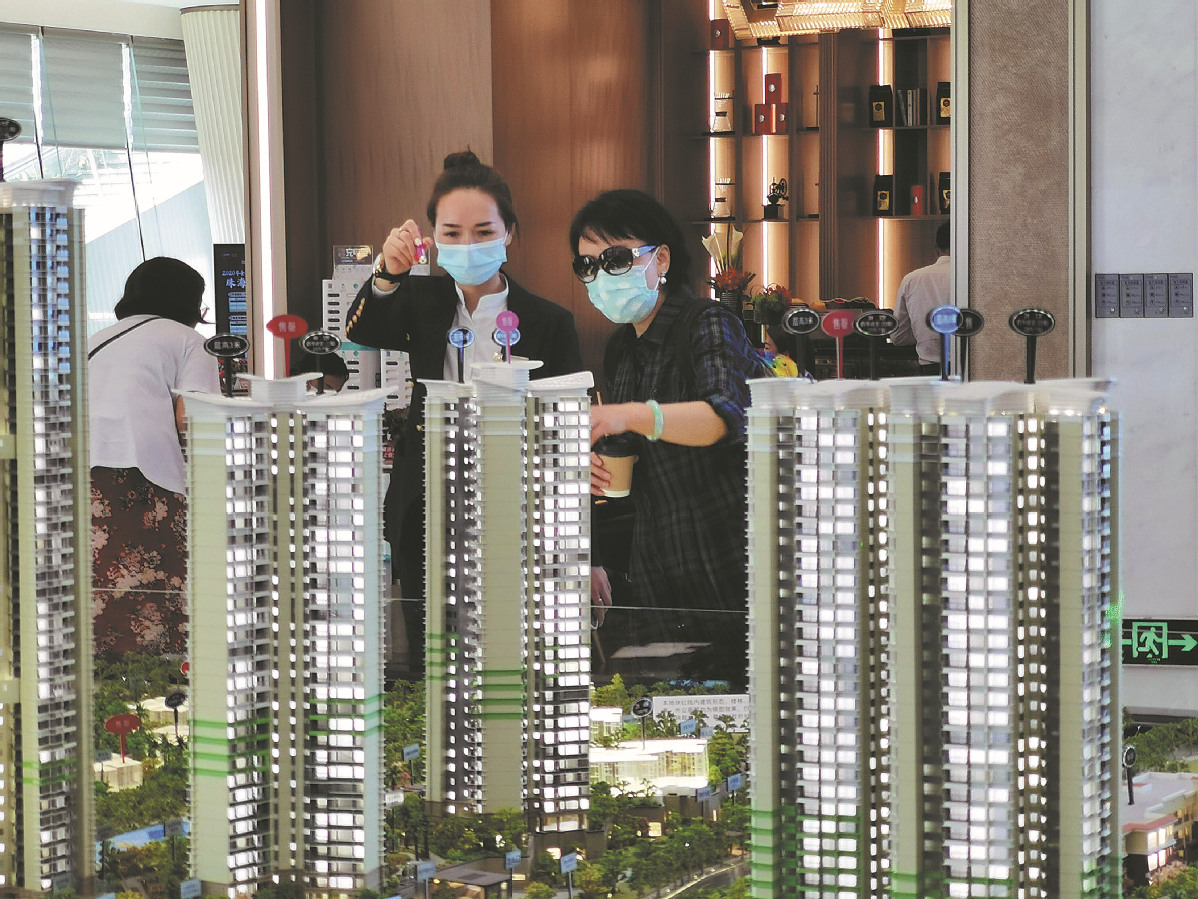Arrows exist in quiver to help manage systemic risk


China has policy space to manage systemic risk exacerbated by liquidity stress among real estate developers, and regulations on their financing activities will slow down housing price growth amid deleveraging efforts, according to a national financial think tank.
The National Institution for Finance and Development, an institution under the Chinese Academy of Social Sciences, published an annual report on China's housing sector financing on Sunday. It predicted that home prices in China will continue to rise in 2021, but at a moderate pace, while default risks among developers will rise.
Li Yang, NIFD chairman, said that Chinese policymakers still have tools available like injecting liquidity to curb default risks in the property market and prevent risk spreading to the financial sector.
The central government has confirmed its policy stance in the 14th Five-Year Plan (2021-25) of supporting a balanced development of the real economy, financial and real estate sectors, which indicates the massive role of the property market in driving the world's second-largest economy, Li said on Sunday.
As an industry, real estate has become as important as the financial services in China, and it contributed 7.5 percent of GDP in the first half, compared with 8.6 percent by the financial industry, according to the report.
"Real estate, finance and the macroeconomy are closely related," said Li, and the economic cycles of major countries are related to the development of the property sector. Most major economic crises worldwide have been fueled by real estate financing risk. "We need to always be vigilant about the real estate market," Li added.
The report found that housing price instability reappeared in 2020 affected by the COVID-19 pandemic. One of the key reasons was the spillover effect of aggressive monetary stimulus in other major economies to hedge against economic slowdown risks.
China established a macro prudential management system over real estate financing last year made up of monetary policy and macro prudential measures. It means even the country's monetary policy stance has to be adjusted to achieve economic growth targets and macro prudential measures-caps on loans to property developers and mortgages as well as the "three red lines"-will be effective in adjusting asset prices and curbing bubbles, Li said.
Beijing unveiled the "three red lines" in August last year to constrain property developers' debt burdens through supervising three balance sheet metrics-debt to assets, net debt to equity and cash to short-term borrowings.
Under the new rules, developers have reduced financing and accelerated the digestion of inventory, which has helped curb housing prices in some regions, analysts said.
While policymakers keep reining in leveraging in the property sector, the default risk of some big and private real estate enterprises is increasing. "The default risk is mainly due to liquidity shortages, as some developers known for their high gross profit margins are facing operational problems amid the COVID-19 shocks and tightening policies," said Cai Zhen, head of the real estate finance research center at the National Institution for Finance and Development.
The deterioration of cash flow, high leveraging situations and low operational efficiency have led to short-term liquidity pressure on large private developers. Meanwhile, they also face some difficulties in getting loans, Cai added.
Since July, prices of private developers' bonds showed greater fluctuations as sales of homes declined over a short term and some companies reported constrained financing situations. Investors with rising risk aversion were also concerned about the quality of property developers' balance sheets, said Zeng Yu, chief bond analyst at China Securities.
China's monetary policy returning to a neutral stance and the benchmark lending rate remaining stable over the short term will help manage risk. Mortgage rates are likely to rise slightly this year, up by 5 to 25 basis points, and the growth of outstanding mortgages is predicted to continually slow down, indicated the report.




































